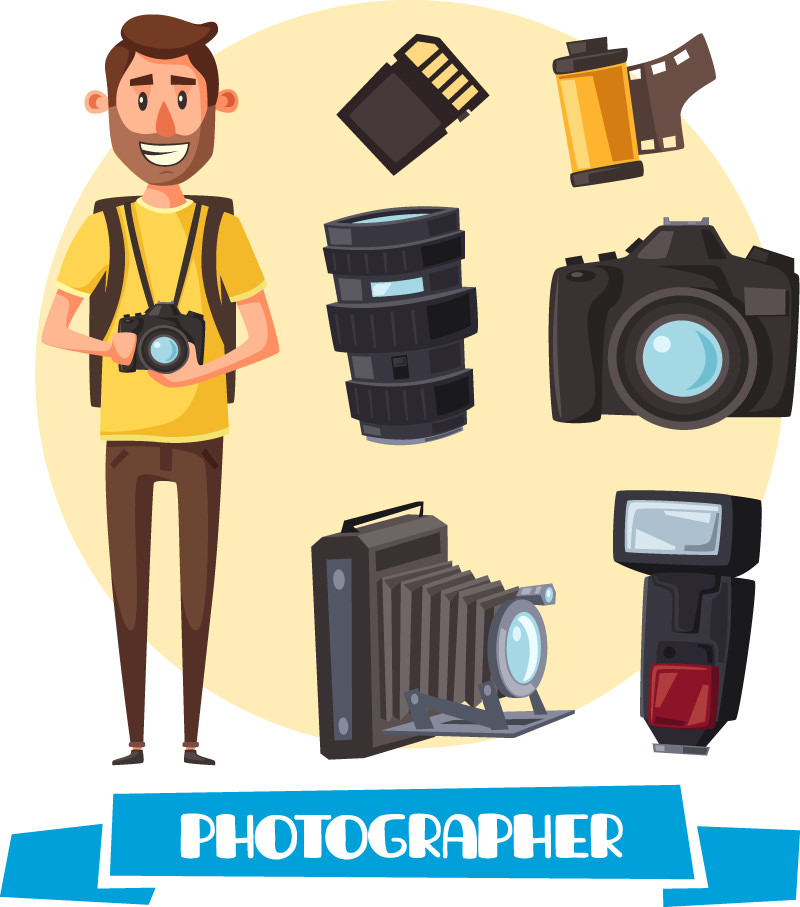Choosing the right photography course provider
You decided to make the first serious step to improve your photography, now wondering how to choose the best school.
Consider these questions to find the best program for your goals.

There are several options available in almost all cities:
- Online video courses and articles (see our recommendations here)
- A single independent photographer
- A non-certified school in your area
- A certified school in your area
Here is a quick comparison of each option:
| Provider | Best For | Pros | Cons |
|---|---|---|---|
| Free online videos | Get an answer to a specific question | Quick, easy, free | Too many offers, contradicting advices, no personal feedback |
| Online degrees | People with very hectic schedule that changes all the time Can learn from information alone |
Cheaper, available on demand | Only 3% complete an online course No networking Lack the “human touch” |
| Workshops by non-certified photographers / schools | Learn a specific subject from an expert | Direct interaction with an expert in that subject | No guarantee on teaching skills or structure of content Register in advance, less flexibility |
| Workshops by certified schools | Photography as a hobby | Direct interaction Structured content Photographer & Educator Certification after course |
Register in advance, less flexibility More expensive than online |
| Long term workshops from certified schools | Photography as a job or a serious hobby | Learn from multiple people who have succeeded in the business Great mixture of theory and practice Structured progress Learn business side Certification |
Cost Time dedication |
What makes the best learning experience?
Overall, keep in mind that teaching photography is a completely different job vs taking good photos. For a successful learning experience, you need:
- Well-structured content: Look for schools who provide the teaching content to their instructors, rather than leaving it completely to the photographer. This is especially important for general courses like beginners, intermediate, Lightroom and Photoshop courses. It is very rare for a single instructor to come up with a full blown teaching content.
- An instructor who is also an expert in teaching: Knowing the subject is not enough. Teaching is effective with passionate instructors who can explain concepts clearly and feels the “pulse” of the group at all times.
- A learning environment that is pleasant: Check if you can see the photos of the classroom / facilities of the school. Otherwise you might end up squeezed in a Starbucks trying to hear the photographer from the background noise J
- Practice exercises that will allow you to try, make mistakes, try again and get constructive feedback.
Check real ratings
Check social media for real ratings from real people. Usually available on the Facebook pages of the provider, that is very hard to fake. Don’t be fooled by claimed ratings on the provider’s website or some beautiful photos from the photographer, these say nothing about the quality of the education you will get.
On our Facebook page, you can see what our previous students had to say about Swiss Photo Club.
Single photographer vs photography school:

Trusting a single photographer can be cheaper, however it has many risks. Great photos do not necessarily mean a great learning experience.
We recommend this route in case of celebrity or expert photographers who excelled in a specific subject and received great ratings. An example could be to join a studio workshop by an expert photographer where you can observe his/her methods, shoot together, ask him/her direct questions and get feedback on your photos.
Bigger photography schools choose their teachers based on teaching performance and knowledge. They should provide the instructor the structure and content to go through, that has been tested and modified over hundreds of classes and students.
Certified photography schools are also obliged to submit their teaching materials to the certifying agency for quality control. A single photographer doesn’t have any of these to worry about.
Swiss Photo Club has centralized content that is deployed to all the instructors, to ensure quality structure and content. The instructors only update the example photos with their own work to tell their own story about each example.
Swiss Photo Club instructors are selected based on the following criteria:
Experts in their fields, have a great portfolio
Very passionate about teaching photography
Friendly and fun to be around
Able to communicate clearly
Certifed vs non-certified photography schools
In Switzerland, Eduqua is the quality label geared towards providers of adult learning. It is only provided to the institutions who fulfill the strict 22 standards and are periodically checked.
The institutions with this label can also provide certifications with the same label after completion of a course.
At the time of the writing of this article, Swiss Photo Club is the only certified & specialized photography school in Switzerland who provides in person trainings. There are a few other certified institutions who received the certificate from other types of courses, but also provide photography courses as an additional offer, such as ifage and Migros klubschule.

In summary, we recommend a certified institution to guarantee good structure and professionalism during your learning.
Next: Choose the correct course.

